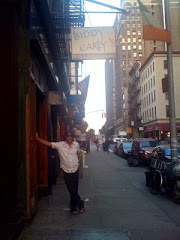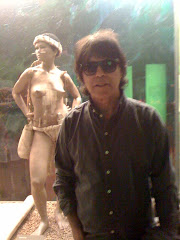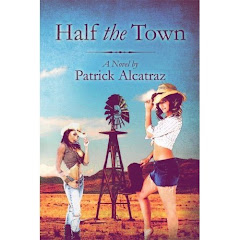 “Standing next to me in this lonely crowd is a man who swears he's not to blame.All day long I hear him shout so loud, crying out that he was framed...” – Bob Dylan
“Standing next to me in this lonely crowd is a man who swears he's not to blame.All day long I hear him shout so loud, crying out that he was framed...” – Bob DylanBy Patrick Alcatraz
Editor
McALLEN, Texas – A Starbucks coffee shop on North 10th Street here is hardly the center of political thought on all to do with today’s Mexico. It is a small business with a steady clientele largely interested in sipping a cup of Joe while reading the morning edition of The McAllen Monitor or while catching up with office work via laptop computer. Noise is minimal, the setting amplified only by the sometimes fighting rock ‘n roll music coming out of the overhead speakers. This is where I meet two gentlemen knowledgeable about the doings south of the border. Mauro and Teto, no last names this close to Mexico, talk as if on Talk Radio or some safe street corner where they can blast the politics and corruption of their native country without fear of sniper fire.
It is not with pride that they do it, however. Their anger is visible and comes with the full weight of two men looking to spread the news, and wishing that others would join them, as well. Mauro is in his 60s, Teto a bit younger. Both come and go across the dividing Rio Grande. Both will tell you they believe Mexico is corrupt from bottom to top, from the small town cop to the president. Neither pulls punches. They see things back home so out of control, so at the mercy of the drug cartels, that to say that they see the light at the end of the proverbial tunnel is to believe that tunnel is not a million miles-long. That large contingent of army personnel sent to the border by Mexican President Felipe Calderon a few months back? Mauro and Teto say it’s all “part of the show.”
“When the PRI (Mexico’s once-ruling political party) lost its first presidential election two rounds ago, the party released the dogs,” says Teto, a burly, balding man in his early-fifties. “The dogs were always there, but the PRI controlled them. Those dogs are now part of the mayhem spreading across Mexico.”
The mayhem he speaks about is largely the drug business. Mexico’s cartels used to be six in number. Today, because of disarray in political power, the number may be as many as a dozen. Deep in the mud of illegal activity, they both say, is the federal government. Corruption is a staple in countries south of the American border. Some of it is sanctioned by the powers-that-be, and some of it is allowed by the citizenry, but the idea that the administration of President Felipe Calderon, a champion of democracy to American politicians that includes President Barack Obama, is complicit has been mainly an internal assessment for the Mexican citizenry.
My entry into Mexican politics came when I traveled around the country while writing for The Houston Post in the late-1980s, when Mexico was another Mexico, when the PRI ruled without competition, when the country was known as a “trampoline” for Colombian drugs and not as a country where the richest drug lord grabbed a place atop Forbes Magazine’s Richest Men In The World survey. Mexico is No. 1 these days as a mover & shaker in the hemisphere drug trade. The infiltration has taken over towns, cities, regions and states. Drug moguls now communicate with political candidates, or so said a current candidate for mayor of San Pedro Garza - a suburb of Monterrey acknowledged as the richest city in Mexico. It is a tremendous flash-forward into the narco-business for a poor country that often boasted its income came from oil and from tourism. Today, the trafficking of illegal drugs reigns supreme. Mexicans fight to get into the game and many are glad to die while wearing wildly-expensive alligator boots and belts, their however-shortened lives at the very least coming with some “respect” from local authorities not used to paying such compliments to the uneducated and the uncouth.
So, when I ask my friends Mauro and Teto for more info, they hit me with this stunner at me: the wife of former Mexican President Vicente Fox is related to the country’s billionaire drug lord, a physically-eccentric dude known quite widely by his nickname of “El Chapo,” the same cat listed as a rich dude by Forbes Magazine, right up there with Bill Gates and Warren Buffet and a few others not exactly tied to the illegal drug industry. “Everybody knows that,” Teto repeats when I ask him to confirm what I just heard. Mauro throws out: “The Bishop of the region where he lives said it! He told the congregation he had no idea why Mexico was saying they didn’t know where Joaquin "El Chapo" Guzman was when everybody in town knows exactly where El Chapo lives!”
Wild, I think, throwing frames onto my brain that come with the sort of assessments about Mexico I’ve heard coming from Washington, D.C. Didn’t President Obama visit with Mexican President Calderon in Mexico City – what? – last month? Didn’t American Secretary of State Hillary Clinton visit with Mexican officials in Monterrey, Mexico a few months back? In there somewhere was word that the government would be funneling still more drug-war millions to Mexico for continuation of that endless scrap. And I know I’ve heard Calderon characterized as being against illegal drugs and against government corruption.
That is when Mauro threw a book at me by a Mexican journalist by the name of Anabel Hernandez. “She has the balls male reporters in Mexico don’t have,” he said in a voice that rose with every word. “Read the book. You’ll see that what we’re saying is true. But there is more, much more!”
The book is “Los Complices del Presidente (The President’s Accomplices).” It is an eye-opening book that paints a different portrait of Calderon and his PAN Party administration. In its 412 pages, readers will find a mountain of examples of corruption and facts supporting allegations. The story of Calderon cabinet member Juan Camilo Mourino, then-Secretary of State, is especially touching, if that’s even the word. Mourino was killed last November 4th in a plane crash many said was mysterious. The government said the aircraft merely flew too close behind the wake of a larger airliner and its inexperienced pilot lost control. Mourino had been accused of okaying, as Secretary of Energy, more than 160 contracts with the country’s national petroleum company, PEMEX, for his family’s gasoline station enterprise, Ivancar, S.A. A government probe cleared Mourino, but the allegation gained footing with the citizenry to the extent that President Calderon is said to have felt the pressure of an independent review. In her book, Anabel Hernandez offers what look like copies of some of the contracts in question. They bear Mourino’s signature and government stamp. When all blame was removed from Mourino’s back by the government, Journalist Hernandez, through her book publicist, declared that it was “an example of the official impunity.” She noted that the contracts in question, said to be only 8 by the government probe team, was actually the more than 160 she later noted in her book.
It was, she went on, proof that the “government continues to sanction corruption and, even when there exist public denunciations, the same officials continue exonerating…”
An experienced reporter, Hernandez also is the author of earlier books that looked into the country’s presidency, the two being “The Presidential Family” and “End of the Party in Los Pinos” – about the presidency of Vicente Fox. Los Pinos is a section of Mexico City home to what is in effect the Mexican White House. Both took a hard line on questionable actions by the Fox Administration.
It is not a new thing. Corruption in Mexico is both historic and cultural. The Latino way of doing things lends itself to backslappings and glad-handing. Here, along the border, the “mordida,” or pay-off at the Mexican customs stations when one heads across is legendary. Jobs of any significance come only through long and discernible party loyalty. And, lately, the fact that Mexico’s economy now wrests on illegal drug trafficking has led to the enlistment of young people into the street-fighting fray. It is not uncommon for a cartel hit man to be a 17-year-old punk making more money in that capacity than anything earned by his family in the history of his DNA. Life suddenly is very good for anyone wishing to ally in the war, for the drug dealers especially. “The government stuff is just show,” Teto insists. “They don’t want to get rid of the cartels. What for? Some of these government officials are getting fifteen or twenty-thousand dollars a month to look the other way.”
And, he notes with a facial expression that says no shit, man, “Who do you think is building the schools and hospitals in Mexico? It’s the narcos! They seek free passage for their drugs and they’ll be asked for payment that sometimes may be construction of a school, or small hospital. They do it! They have the cash!”
The Texas-Mexico border this far south, from Laredo upriver to Brownsville in the other direction near the Gulf of Mexico, used to be a passive chunk of lands for both countries. The border crossings offered little if any delay and soldiers were as rare as a businessman in a suit. Those days are gone for the Rio Grande Valley where this sits. Today, it is an army of U.S. Border Patrol agents backing an army of U.S. Customs Service agents backing an army of immigration agents backing an army of local cops. That’s the obstacle course to beat when headed for Mexico. When coming back, it is almost like a funeral-in-reverse. The Mexicans have their own game. They ask the questions about where you’ve been and what you’re ferrying in your vehicle, but, on the Mexican side, it is a scene out of some action-packed war video game. Dour-faced soldiers in thick green uniforms walk the streets, right past sand-bagged, machine-gun bunkers with a soldier’s finger forever on the trigger. They don’t talk, they don’t smile. They stare ahead for long seconds before their heads then perform a slow swivel that allow them to see the rooftops and the sidewalks and the passing vehicles. They are there 24 hours a day, ready for gunfire that more often than not spills out into the seemingly laid-back landscape. It is not war-ravaged Baghdad or Fallujah; it is Reynosa, Mexico – a large border town once the playground of adventurous or bored Rio Grande Valley high school boys looking for a cold beer or a cheap woman on a weekday afternoon when they should’ve been in class.
“Today, even I don't take my wife across the river,” Mauro had told me, emphasizing the “I,” as if it was being uttered by a some tough guy who perhaps earlier in life wouldn’t have tolerated anyone telling him where he could and couldn’t go. It’s now a good idea to follow advice about where to go and where not to go in Mexico.
My conversations with Mauro and Teto took me back to my days as a reporter for The Post in Mexico City, when I would go for my morning coffee at the Havana Cafe near the national government complex. I recall it was abuzz with political chatter that often included assessments from the heady waiters. I remember a lot of the talk back then was about the possibility that the ruling PRI Party might lose a governor's race in the northern part of the country, a region with a history of political insurgencies. A governor's race. That sounds so silly today. The PRI has lost governor races in the interim, and many believe it is the loss of that full-metal hold that has left the country at the mercy of the cash-fat drug lords.
That's what my Starbucks friends meant when they said the dogs had been let loose in Mexico...
- 30 -
[Editor's Note: It goes without saying that we do not offer this as a definitive, end-all report on Mexico. It is but yet another slice of the tale. We encourage discourse, but will end the "anonymous comments" feature simply because, to us, something stinks about "anonymous" writing...]












.jpg)





2 comments:
I sit here reading your words of wisdom? Or rather your thoughts or is it a theory of what Mexico is or has become or what it was? I find it rather amusing that one would take the relative position that two men could single handedly sumise the disposition that is Mexico. That one book could clarify any stains that are on the calle de pinos. Mexico is no different than the United States, your great land. One sits as judge jury and executioner with out looking in the mirror. Americans are as guilty to the same sins that occur in Mexico. It is the same arrogance that gestates a hate towards Americans. The "I am better than you because I am American Syndrome" Corruption, in the US, where do you want to start. Let see, George W Bush. Hmm a man with ties so deep with the oil industry that if you cut him he bleeds gold, black gold, pure crude. We forget the lessons our fathers taught us but remind ourselves of the mistake of others. The reflection in the pool is self serving. In the past 20 years the price of gasoline in the United States has increased twice, during Father Bush's term and then again with Jr. Let us not lead into temptation. The Bush family or rather the King of Saudi family or is it one in the same own the same physical rights to crude that is used up in the United States. The rich get richer and poor stay, well poor! A war of atrocity, that would be the "that man tried to kill my daddy war!" Who actually was the benefactor to this war. Hmmm, can one say Haliburton? Dick Cheney "the actual president for the last 8 years." My friend, corruption is all around you. Its in the city where you exist, where a bogus board that call themselves heart of the city cater to one entity. Where every Tom, Dick & Harry are looking for an angle. Where some one looks to a bored wealthy house wife to help full fill a dream. More power to you but wouldn't one call that a modern "mordida" An empty Glass House hurts no one, but a Glass House with many guest will always shatter. Is Mexico the cess pool of oblivion? Only if the drain is this great land of ours. Carefull, I think our house is shattering, there seems to be some money missing from the FEMA account. Again, it is not an acronym for Find Every Mexican Available. Is there drug issues in Mexico? No more than the demand that we crave in the US. Here is another way to look at this, George W became president without winning the popular vote. He is by all accounts a Supreme Court President. Felipe Calderon won the norther industrial votes. Irony, only a quarter of the people that live in Mexico live in the northern states. By all accounts he is the president of the wealthy. Same corruption fancier name. I guess this goes to tell you, objects may appear closer than they actually are!
The story you refer to is about Mexico. Absolutely, there are similarities in the lives of other countries. The Bush Years were shameful to America. But Mexico remains a singular entity that deserves study if for no other reason than because it is our neighbor. To simply take the position that someone's words arrive without invitation is hollow. You are free to visit with us, as you are to stay away. We bring no dogma, and we're sure you will take a different position on future reports you see here... - Ptrick Alcatraz, Editor
Post a Comment